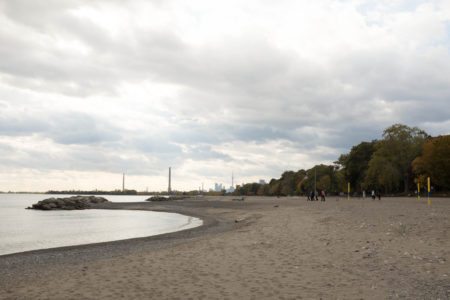Recent developments (before the US election) have left me worried that there is a broken culture in Toronto environmentalism, and perhaps the environmental movement more generally.
Erosion of democracy
First — Toronto350.org and (while it existed) UofT350.org were founded on a model of open and participatory decision making, where all volunteers are members who have the final call on big decisions. That model has been undermined in a number of ways, primarily through institutional design choices, social cliques, and secrecy.
Toronto350’s decision to incorporate created a board, and almost none of the board members have been active volunteers. This has created a split between authority and involvement and has essentially broken Toronto350’s decision making structure, as decisions from the board are frequently informed by little understanding of how the group actually operates, and volunteers feel alienated from decisions being made by people who they neither see nor actually work with.
In both the Toronto and U of T groups, decision making based on personal relationships has often eclipsed or replaced open and inclusive decision making. In part this has been because a lot of members are bored and frustrated by decision making which they see as boring and bureaucratic. In part, it’s a response to interpersonal conflict: people pull back from engaging the general membership to engaging only with people who they still get along with. In part, it’s the result of a lack of respect for democratic procedure. There’s a case to be made that activist groups shouldn’t be democratic to start with, and would be better led by a vanguard of individuals capable of setting a coherent and effective agenda. That said, within groups that have been structured to function democratically, it’s deeply problematic when those in positions of authority fall back on making strategic decisions in private with their friends.
Taken to the next level, decision-making among friends becomes decision-making by a socially exclusive clique within but not representative of the general membership. In this situation, your social positioning and alliances become more important than the quality of your ideas and people interpret decision-making in terms of social impacts rather than the degree to which one action or another serves the stated aims of the group as a whole. A good sign that a social clique has taken over decision making is when elected executives do not meet or make decisions, and where changes in group functioning or priorities seem to come out of nowhere.
Periodic strategic planning sessions attended by a subset of the membership are not an alternative to a functioning executive, and can in fact make decision making problems worse by establishing contradictory priorities or being dominated by a small number of vocal members.
Secrecy is another major factor. For a few types of direct actions, it can be necessary to maintain operational security beforehand. At the same time, when strategic decision making begins to happen in secret, it’s often a way for a group of insiders to avoid having to hear or consider the perspectives of others. This can run in concert with when functions within an organization become enduringly linked to a specific individual, making the apparent elected structure not reflective of actual organizational functioning. This is a sort of empire-building, where people feel ownership and entitlement to particular campaigns or roles and where they assert themselves through hidden and private channels rather than involvement with the general membership.
Quite worrisomely, following the disbanding of UofT350.org after President Gertler rejected divestment, the principal group which has been formed by a minority of former members now seems to be exclusively engaged in Facebook activism, and actively rejects involvement from some of the most capable and committed organizers who were involved in the divestment campaign.
Lack of democracy is even more extreme with Canada350.org / 350Canada.org, which isn’t a real organization but rather a brand used by the handful of 350.org staff who are working on Canadian issues. That being said, unlike the Toronto and UofT organizations, the Canadian group (to the extent it exists) was never built on a model of open or participatory decision making. From the perspective of local 350.org chapters, at least, that also applies to the international 350.org organization.
One-way emotional progressions
Second — I have often felt that members of climate activist groups behave as though their emotions can only progress in one direction, toward the accumulation of more frustration and resentment both toward other volunteers and toward entire organizations.
It’s as though everyone has a little frustration thermometer for each organization and other person, and it ticks up by a degree or two every time there is a decision which that feels incorrect or problematic, and each time another volunteer does something which seems worthy of disapprobation.
This is one explanation for why so many of our most effective and committed activists have broken ties with the group, as well as for why people have a frustrating tendency to break off and form new small and ineffective organizations rather than working to revitalize older ones which are larger and have at times been more capable.
Decision making largely motivated by resentment has been especially evident during elections, where people who have long histories of involvement (and who have therefore raised the temperature in the thermometers of a lot of other people) have often been rejected in favour of people whose involvement has been non-existent, limited, or invisible to the general membership.
I have chosen to stop being involved with Toronto350.org for at least a year or two in order to focus on the PhD which I neglected so much while working on the divestment campaign. I hope the culture of climate activism in Toronto can improve, and that effective and popular new groups will emerge with a variety of decision making structures and theories of change. We can’t afford to fail in our response to climate change, so everything that strips us of effectiveness is something we need to think through seriously and respond to with practical solutions.
Reminder: Anonymous comments are encouraged


